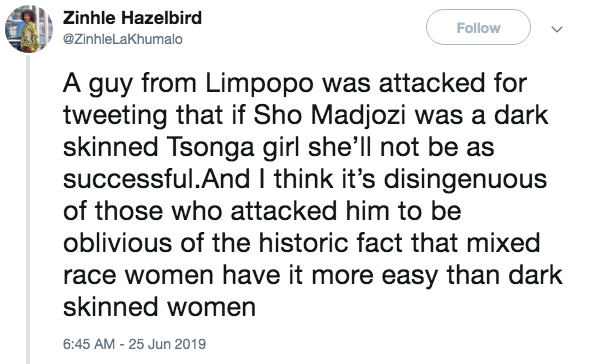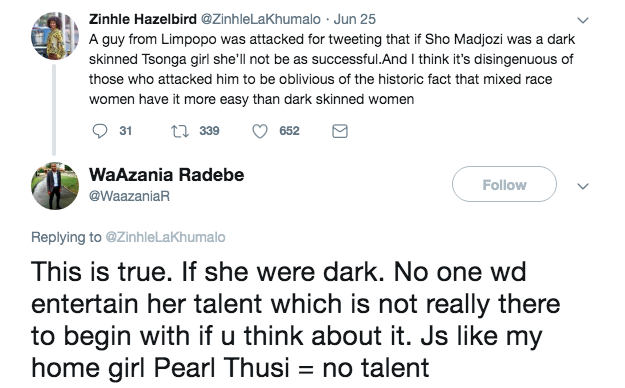Sho Madjozi Speaks On Colourism After Being Called Talentless

Sho Madjozi Speaks On Colourism After Being Called Talentless – In South Africa and some parts of the world, Skin complexion can be a very sore point for people of colour.
Regardless of how oblivious one can be, unfortunately, colourism persues to permeate circulating black, coloured, Asian and Indian communities. Colourism is prejudice or discrimination against individuals with a dark skin tone and bias in favour of lighter-skinned people.
Sho Madjozi took to social media to share her thoughts on colourism and her work ethic, following being accused of being talentless and only receiving the hype she does because of her light skin shade. How was this topic established you might ask?


“Beautiful for a dark girl” or “Yellow bone” perpetuate light-skinned privilege and create damaging social ideals of beauty.
‘Yellow bone’ is a controversial dialect term often utilized to describe light-skinned black women in South Africa. Hence the level of skin bleaching to look more appealing to the society at large. She states that women are valued more when they are considered attractive by man, so is all this transpiring amongst women based on how the opposite gender has outlined as the standard of beauty for women? Or is there more than what meets the eye? Something to research.
She touches on the subject matter of the way black people’s idea of beauty is colonised. When you observe a lot of current Western beauty standards they honour whiteness — this is not an objective, biological, evolutionary ideology, but we live in a community were literally just being a white person has its privileges. When you date back to history and observe at the work of some early racial theorists — the likes of Christoph Meiners and Johann Blumenbach — they expound the classification of “white,” or “Caucasian,” as being the most appealing of the races.
What does society need to do to promote self-confidence and positive dialogue around skin tone and authenticity? Do we need to have more conversations about colourism that will encourage people to challenge social biases? Think about it.
Written: Aphiwe Theodorah Mvinjelwa




